Reset buttons in games we play
The first computer to appear in our home was a Texas Instruments TI-99/4A. My 11-year-old son Danny bought it with his paper route money in late 1982. It had no disk drive. A small connected TV served as the monitor. By today’s standards it was certainly primitive. But at the time I thought it was marvelous.
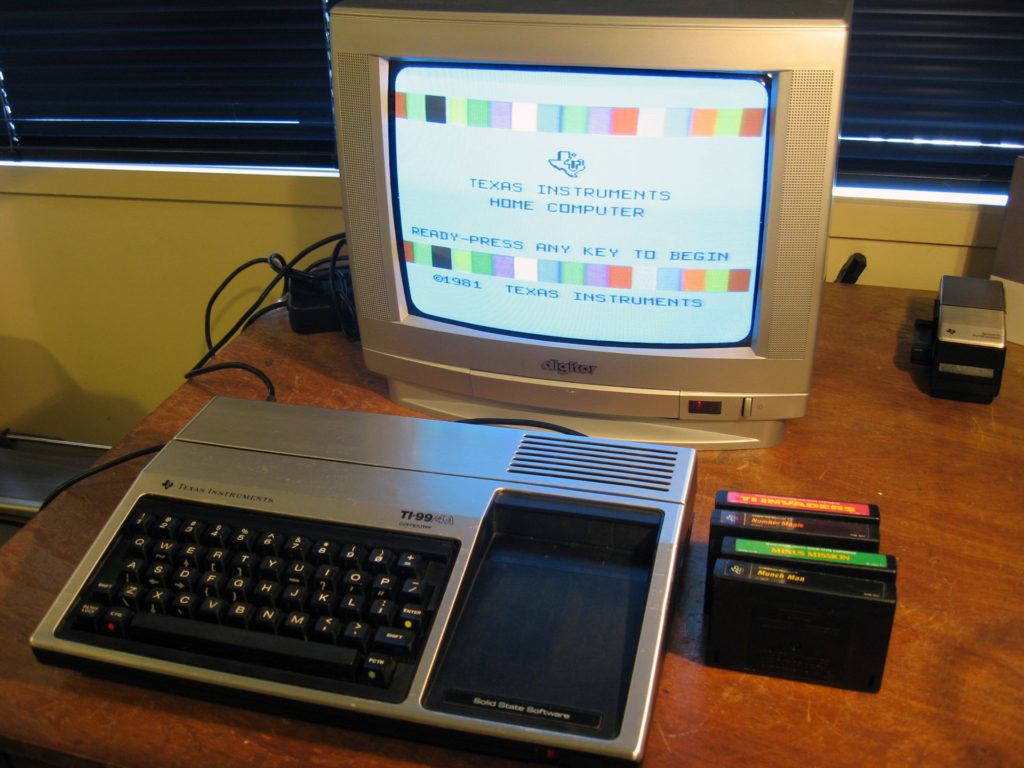
Danny let me use his new computer for a few serious computational tasks. But I best remember it for an installed game called Tombstone City. In that game the player controlled a prairie schooner and won points by shooting aliens and tumbleweeds in order to entice people to come back to live in an abandoned city somewhere in the Southwestern United States. As it was a single player game, the goal was each time to better one’s previous best score.
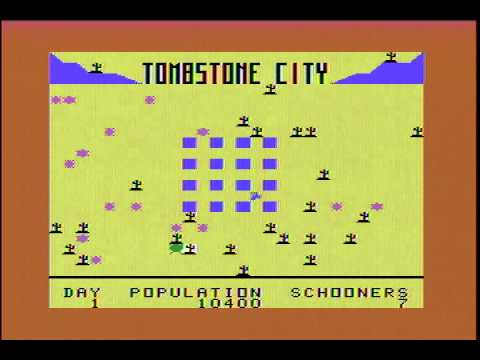
The most impressive aspect of the game, as I remember it, was that it had a “reset button.” I could restart the game if I was doing poorly and had no hope of achieving a high score. I often availed myself of that button! It is hard to find any excitement in failure or to want to proceed in a losing cause.

This desire to start over is not limited to computer games. For example, how would we have felt if we had been Washington Redskins players or fans halfway through the 1940 league championship game, which the Chicago Bears won 73-0? 
Chicago scored two more times after this photo was taken.
The Cumberland College Bulldogs suffered an even worse fate playing the Georgia Tech Engineers back in 1916. Cumberland had discontinued its football program before the season started. But it wasn’t allowed to cancel its game against Georgia Tech without financial penalty. And since the Cumberland baseball team had run up the score against Georgia Tech earlier that year, 22-0, the Tech football coach, John Heisman, was ready to reciprocate. Cumberland recruited enough players to take the field against Georgia Tech. But they finished with minus 96 yards rushing and a total of 14 yards passing. Tech, meanwhile, ran for 1,620 yards, never passed once, and demolished Cumberland 222-0. That still stands as a record lopsided win in college football.
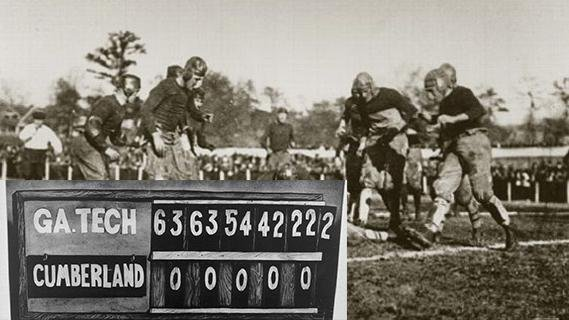
The Washington Redskins and the Cumberland Bulldogs likely both wished they could have done what the South Torrance girls high school basketball team did after trailing Morningside by 102-24 at halftime in their 1990 matchup. The South Torrance team simply went home, refusing to take the court for the second half.

Who could blame them? For similar reasons, many ping pong players have adopted an informal “skunk rule,” whereby a game is considered over if the score reaches the 7-0 point. There are “mercy rules” in many intramural leagues and amateur competitions. In international baseball competition, games end when one team is ahead by 10 runs, provided the trailing team has played at least seven completed innings. In women’s competition, the same rule is invoked after five innings.
Heavenly Mercy Rules and Reset Buttons
Fortunately, a merciful Father in Heaven is no more eager to humiliate His children and subject them to failure than a kind coach is eager to run up the score on his opponent. He has provided “mercy rules” which allow us to press a “reset button” and start over at frequent intervals. Just as the proverbial elephant is eaten one bite at a time, so do we achieve goals one day at a time. With effort, sometimes we can maintain success for a week, and then for an entire month or even a year. Eventually, change can become permanent. But if we fail today, we can start over tomorrow with the potential for perfection–at least for one day.
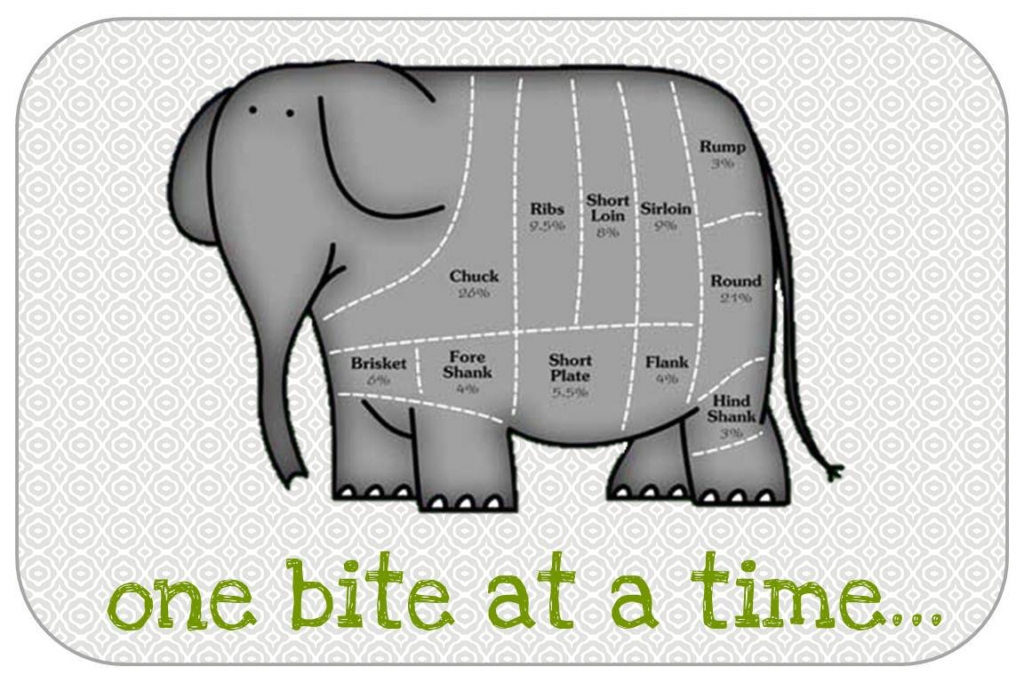
The scriptures seem to indicate that in heaven there is no night. They also tell us that “all is as one day with God, and time only is measured unto man.” (Alma 40:8.) Once we achieve perfection, we may not need the frequent opportunities to “start over” that we do here. But here and now, one of God’s great blessings to us is the opportunity to repent, put the past behind us, and begin anew. Perhaps that is one of the reasons for the veil of forgetfulness put over our minds when we leave the premortal world. Its purpose may not be simply to allow us to live by faith rather than by sight. It may also allow us to forget whatever limitations or imperfections we may have had in that realm and allow us to begin mortality with a clean slate.
Let’s take a closer look at the benefits of short-term goals and frequent reset buttons.
New Year’s Resolutions
The beginning of each new year is typified by new year’s resolutions. Each January we resolve to accomplish in the new year that which we didn’t achieve in the previous one.

Unfortunately, new year’s resolutions have a very poor success rate. Studies show that 80% of us will fail by the second week of February. Only 9.2% will actually achieve our goals.
How Can We Improve Our Success Rate With New Year’s Resolutions?
Why are the statistics so gloomy concerning the achievement of new year’s resolutions? What can we do to increase our odds?
Part of the problem may be that our goals are not realistic. But another part may be that at our first perceived failure of the year we feel that we have already ruined our chances for a perfect year, so we may as well wait until the following January to try again? Are we like the South Torrance girls basketball team? Do we feel so far behind in the pursuit of our goal that there is no use continuing to try? Do we need a reset button?
Monthly goals

A new year’s resolution which we don’t break down into monthly, weekly, or daily activities is doomed to failure. It’s merely a wish—not a goal. We convert dreams into plans by dividing them into measurable pieces and putting each on a calendar or agenda.
Some goals lend themselves well to measurement by the month. For example, some members of The Church of Jesus Christ of Latter-day Saints may have a goal to attend the temple more frequently in the year ahead. To achieve it, they may wish to set a goal of attending once a month. But to make that happen, they will need to select a specific day and time each month and write it down in their personal planner. And they will need to treat that commitment as seriously as a salesman would an appointment with a potential customer.
In the past, home teaching and visiting teaching were measured monthly. Under the new ministering program, we no longer report visits. But ministering elders and sisters may well want to contact their families at least monthly and plan early in the month when they will do so. Daily or even weekly contacts could be excessive. But merely annual contacts would usually be inadequate.
Similarly, we often pay tithing once a month. We fast and pay fast offerings each month. Missionaries would be grateful if members fed them and if they accompanied them on visits once a month. The key is to pick a specific time and date each month and stick with it.

Weekly Goals

Other goals may be best approached on a weekly basis. Our Father in Heaven has given us a great help in this regard by instituting the weekly Sabbath. By taking the sacrament each week, we avail ourselves of the ultimate heavenly “reset button.” The wording of the sacramental prayer makes no reference to how well we did or did not succeed in keeping our commitments the previous week. It simply invites us to commit to keep God’s commandments the following week. In return, it promises us a clean slate once again, just as we had when we were baptized.

Other weekly Sunday goals could include reading the prescribed lesson material for Sunday School, Relief Society, and priesthood meeting. We will want to participate actively in the indicated classes each Sunday. Beginning in 2019 we will want to study the material in Come, Follow Me—For Individuals and Families each week.
We will want to have a meaningful family home evening each week. Many will add a weekly family council meeting and weekly family recreational activities. Thoughtful husbands may wish to schedule a special weekly “date night” with their wives. Retired couples may want to attend the temple each week rather than merely once a month. Many of us will want to write to missionary relatives or other loved ones with the same frequency. Once a week we may wish to review our agenda for the following week and make specific plans to accomplish each of our goals and commitments.
Daily Goals
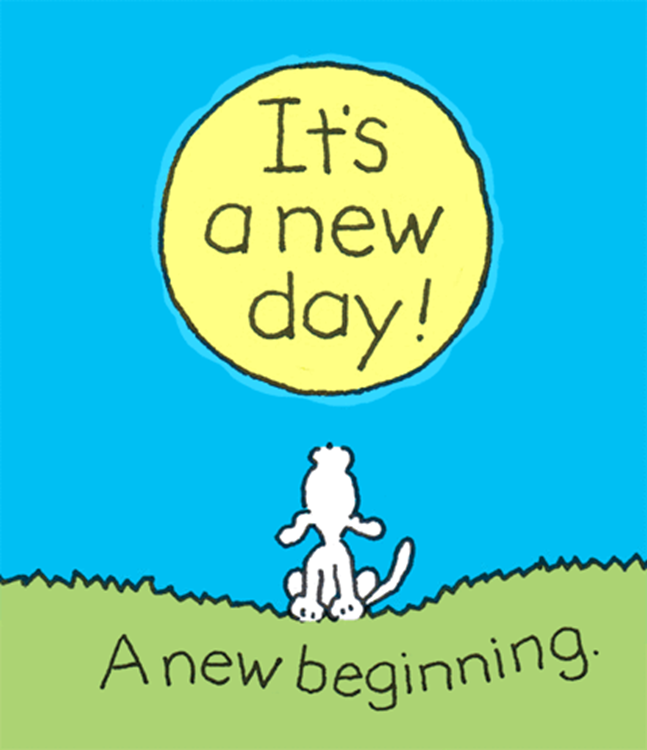
The most important of all goals are probably the daily ones. Every twenty-four hours we have an opportunity not only to rest but to start over. In the Book of Mormon, the Lord tells us: “As often as my people repent will I forgive them their trespasses against me.” (Mosiah 26:30). When we get out of bed, no matter how poorly we did the day before, we can tell ourselves that at least so far, today’s performance is perfect!
Some goals each of us may wish to consider tackling each day could include:
- Personal prayer (usually at least twice a day)
- Family prayer (usually twice a day)
- Personal scripture reading
- Book of Mormon
- Other
- Family scripture reading
- Other reading for self-improvement
- Exercise
- Writing in our journal
- Planning in writing the day’s activities
Each day we will also want to consider accomplishing 1/365th of each annual goal. For example, if we plan to read the New Testament during the year, with its 260 chapters, we will need to read one chapter on most days. But if we were to read the 929 chapters of the Old Testament, we’d have to read nearly three chapters per day.
Family history can similarly be broken down into daily or weekly goals. We will wish to determine how much time per day or per week we can devote to family history research. For those with demanding jobs, time-consuming Church callings, and children in the home, the amount of time available for some of these pursuits may be limited. But it should be something, and we will want to determine just when and how we will fit it in. We may wish to spend 15 or 30 minutes per day indexing. Or we may find that much per week is all we can afford.
The Lord has indicated that His spiritual gifts are “given for the benefit of those who love me and keep all my commandments, and him that seeketh so to do.” (D&C 46:9.) In other words, we don’t have to be perfect in achieving our goals. But we do have to be setting them and making a good faith effort. And part of our planning needs to be to plan to have personal time to rest, meditate, and have appropriate recreation. Even Jesus didn’t spend all his time in preaching. Sometimes He went not toward but away from the multitudes, so He could rest and prepare for the day or week ahead.
Research shows that it takes about sixty-six days to completely break an old habit. Acquiring a new habit can take even longer. But success in either depends on setting small daily goals and celebrating each positive change. It depends on our not feeling discouraged when we fall short of our ideals. It requires us to recognize and take advantage of the daily, weekly, monthly, and annual reset buttons the Lord has afforded us.
The Most Important Key to Real Change
Some pessimists have concluded that human nature really can’t change. Resolutions and self-improvement campaigns, they declare, are all doomed to failure. One of the great contributions of the Book of Mormon is to show that a change of nature really is possible. For example:
- Alma and the sons of king Mosiah were once “the vilest of sinners” and persecutors of the church. They later became mighty missionaries.

- King Lamoni was once a murderer, as were his father and his subjects. They became so converted that they would not even lift a weapon to defend themselves.

- Zeezrom changed from being a dishonest lawyer and a strident anti-Christ to being a valiant preacher.

- Amulek was once a worldly and apathetic believer at best. Under Alma’s tutelage he became a great missionary companion.

But none of these transformations occurred from merely making a new year’s resolution. They required a “mighty change” so profound the scriptures term it a “new birth.” For the senior Lamanite king (Lamoni’s father), it required a willingness to “give away all his sins.” In all cases it required a stark recognition of the seriousness of past actions and an understanding that Jesus Christ has paid the price for those for all who are willing to accept Him and commit to keep His commandments in the future. In other words, it was predicated on what the scriptures call “faith” and “repentance.” It required entering into a formal covenant with the Lord through baptism. Baptism, in turn, made one eligible for the gift of the Holy Ghost. And that gift brought with it spiritual strength to actually keep the baptismal covenant—and to achieve all other worthy goals.

Some act as though the purpose of life is simply to endure to the end on an acceptable plateau of mediocrity. They seem to feel it is enough just not to do anything terribly wrong, or to make amends if they do and then carry on as before. But Jesus held up a higher goal for us. To the Nephites, He commanded: “I would that ye should be perfect even as I, or your Father who is in heaven is perfect.” (3 Nephi 12:48.) The Lord may well not expect that we will achieve that perfection in this life. But He clearly expects us to make steady progress. That is possible only as we set measurable daily, weekly, monthly, and annual goals. It depends also on our not feeling unduly weighed down by past failures but avail ourselves of the new start available at each interval, recognizing that Jesus Christ has paid for the difference between our aspirations and our accomplishments.
I have recently acquired several dozen new Facebook friends from around the world—many of them in Uganda. One of them recently posted something applicable to our current topic. She wrote: “No condition is permanent. Forget about my past. Please focus on my present and future.” As we begin a new year, I hope and pray that all of us will remember that and thank the Lord for the opportunity of frequent new beginnings.

